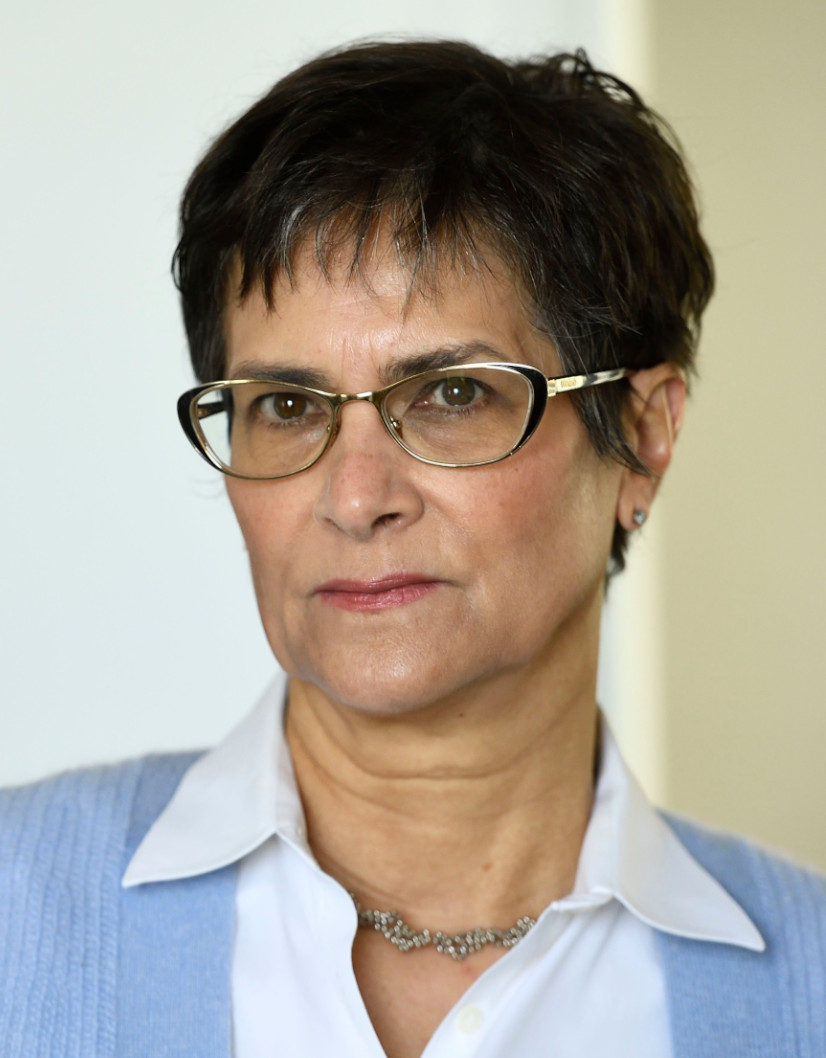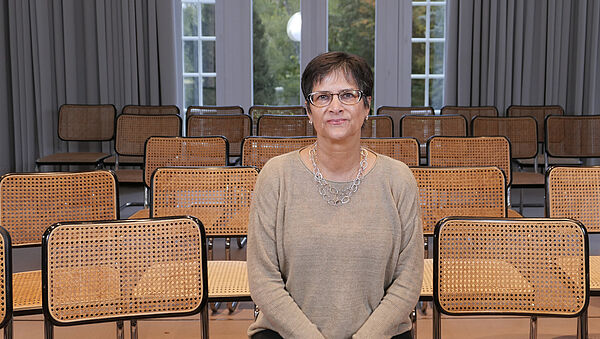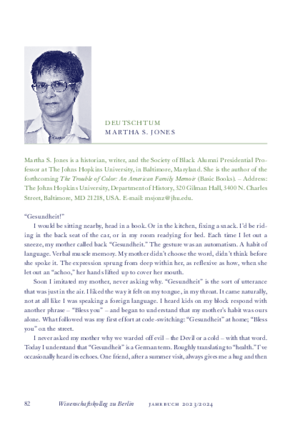
Martha S. Jones
Society of Black Alumni Presidential Professor, Professor of History and of the SNF Agora Institute
Johns Hopkins University, Baltimore
Born in 1958 in New York City, N.Y., USA
Studied Psychology at Hunter College, Law at CUNY School of Law, and History at Columbia University
Arbeitsvorhaben
Hard Histories
Hard Histories examines the role of historical thinking in processes of reckoning with the difficult, unwelcome, and even unspeakable past. They shatter old myths and open up new ways forward. “Hard” points to how difficult it is to dislodge a mythical past, while also pointing to how new historical truths threaten to humble, destabilize, and transform us. Hard histories is also a practice that reckons with the difficulties of reinterpreting the historical archival record while also changing it.Historians often speak to other historians – a debate we term historiography – while hard histories speak to those outside the academy. Hard histories chal¬lenge popular narratives while also valuing transparency, collaboration, an ethics of care, and public-facing knowledge production that builds bridges, relationships, and new modes of storytelling.
Hard histories invite a look inward at what happens when historians counter mythical tellings of the past. Lessons surface. Denial is a force distinct from the archival record. Subterfuge distorts understanding. Values – tradition, reputation, and excellence – keep myths afloat. Hollow gestures paper over vestiges of a troubled past. Academic explanations of the past run counter to those of families, communities, and critics who stand in defense of the myths we aim to dispel.
Hard histories in the U.S. have been especially brought to bear on the past of slavery, settler colonialism, and racism, shattering myths and replacing them with new histories. Still, we must ask where hard histories end and new futures begin. We must ask, “Who owns history?” I am a historian unearthing how slavery and racism are embedded in the present and also a descendant of women enslaved in 19th-century America. Hard histories expose not only how the histories we tell have changed. It reveals how who tells those histories has changed, too.
Recommended Reading
Jones, Martha S. All Bound Up Together: The Woman Question in African American Public Culture, 1830–1900. Chapel Hill: University of North Carolina Press, 2007.
—. Birthright Citizens: A History of Race and Rights in Antebellum America. New York: Cambridge University Press, 2018.
—. Vanguard: How Black Women Broke Barriers, Won the Vote, and Insisted on Equality for All. New York: Basic Books, 2020.
Kolloquium, 12.03.2024
"The Trouble of Color: An American Family Memoir"
„The Trouble of Color“ ist eine Entdeckungsreise. Ich gehe der Frage nach, wer meine Familie war, aber auch, wie es sich anfühlte, wir zu sein. Es ist eine Geschichte von der Konfrontation mit der Rassengrenze über viele Generationen hinweg und wie sie sich für mich als ihre Erbin anfühlt.
Soweit ich in die Vergangenheit zurückgehen und es wissen kann, war meine Familie an einer scharfkantigen Rassengrenze gefangen. Wir wurden von ihren Zähnen erfasst – diese endlose Linie glühender Bedrohungen, gezackt und messerscharf wie die Klinge einer Handsäge –, ihre Biegungen hinterließen erst einen Schnitt und dann eine Narbe. Wir traten ganz vorsichtig auf, näherten uns ihr, wir versuchten sogar, über sie hinüberzuklettern. Wir waren versucht, nahe an die tiefen Schnitte heranzugehen; wir wichen zurück, um Abstand zwischen unsere dünne Haut und eine Klinge zu bringen, die dazu gemacht war, uns bei lebendigem Leib zu häuten. Wir hüpften, schritten und tanzten einen ungeschickten Two Step. Einige von uns tanzten Walzer. Mit dem Stift in der Hand zogen wir manchmal die Grenze neu, zumindest einen kurzen Teil davon. Es ist eine Reise, qualvoll und verwirrend, grausam und verführerisch, persönlich und verhängnisvoll öffentlich. Wir stellten uns tot und haben getrickst, stehen mit großen Augen und trotzig da, während uns die Tragödie, vielfach maskiert, verfolgt und ausschalten will. Wenn ich mich dieser Grenze nähere, bin ich den Generationen vor mir durch unklare und sogar ungesagte Anfänge verbunden – mit zu heller Haut, zu feinen Gesichtszügen, zu glattem Haar. Ich bin eine Erbin von Missverständnissen, Irrtümern und falschen Identitäten.
Ich wusste, dass das Handwerk der Historikerin von mir verlangte, meine Familiengeschichte zusammenzutragen und sie mit den Geschichten zu verbinden, die wir zuvor geschrieben hatten. Damit unsere Leben für die Geschichte von Bedeutung waren, musste ich zeigen, dass wir zu den Erzählungen etwa über die Sklaverei und ihre Abschaffung, die amerikanische Apartheid oder den Aktivismus der Bürgerrechtsbewegung etwas beigetragen hatten. Ich wusste, dass andere Historiker unsere Geschichten in bewundernswerter Weise für genau diese Zwecke verwendet hatten. Ich wollte Ihnen erzählen, was unsere Familie bedeutete, nicht für die Geschichte, sondern für mich, für uns als Familie. Ich war mir sicher, dass wir von Bedeutung waren, und nicht, weil andere Gelehrte mir das sagten. Ich wusste, dass wir von Bedeutung waren, denn als ich mich in unsere Vergangenheit vertiefte, schlug mein Herz schneller, Tränen stiegen mir in die Augen, Wut, Angst und sogar Stolz durchströmten mich. Ich könnte ein Buch über Fakten und Zahlen schreiben und viele davon liegen meiner Prosa zugrunde, aber ich wollte vor allem sagen, was ich fühlte. Diese Art des Schreibens, die vom Kopf zum Herzen geht, die uns zum Denken und dann zum Fühlen auffordert, bezeichnen Schriftstellerinnen und Schriftsteller als Memoir, wie ich erfuhr.
In „The Trouble of Color“ denke ich über meine Vorfahren nach, ich tauche in die Geschichten ein, die sie erzählt haben, und in die Geschichten, die wir über sie erfinden. Im Buch geht es um Vergangenheit und darum, wie diese auch heute noch für uns gegenwärtig ist. Anhand von Erinnerungen, Papierfetzen, mit Hoffnungen, Träumen und Ängsten können wir unser reiches Erbe vielleicht retten. Jede Generation erzählte die Geschichten, die sie am besten kannte und die sie brauchte, um sich den Schwierigkeiten zu stellen und nach den Verheißungen ihrer Zeit zu greifen. Ich bin in diesen Strom hineingestiegen und habe mich einer Tradition des Erzählens von Familiengeschichten angeschlossen, die vermutlich noch lange fortbestehen wird, nachdem dieses Buch einen ruhigen Platz in einem Bibliotheksregal gefunden hat. Die Lieben, die vor mir kamen, leisteten mir auf dieser Reise Gesellschaft. Für jeden Schritt meines Weges erteilten sie mir die Erlaubnis, sie ermutigten mich, griffen ein und kümmerten sich um mich. Ihretwegen bin ich. Ihretwegen weiß ich, was ich weiß.
Publikationen aus der Fellowbibliothek
Jones, Martha S. (New York, NY, 2025)
The trouble of color : an American family memoir American family memoir
Jones, Martha S. (Buffalo, NY, 2022)
Thick women and the thin nineteenth amendment
Jones, Martha S. (New York, 2021)
Jones, Martha S. (New York, 2020)
Vanguard : how black women broke barriers, won the vote, and insisted on equality for all
Jones, Martha S. (Cambridge, 2018)
Birthright citizens : a history of race and rights in antebellum America Studies in legal history
Jones, Martha S. (Chapel Hill, 2015)
Toward an intellectual history of black women The John Hope Franklin series in African American history and culture
Jones, Martha S. (Chapel Hill, 2007)
All bound up together : the woman question in African American public culture, 1830 - 1900 The John Hope Franklin series in African American history and culture


